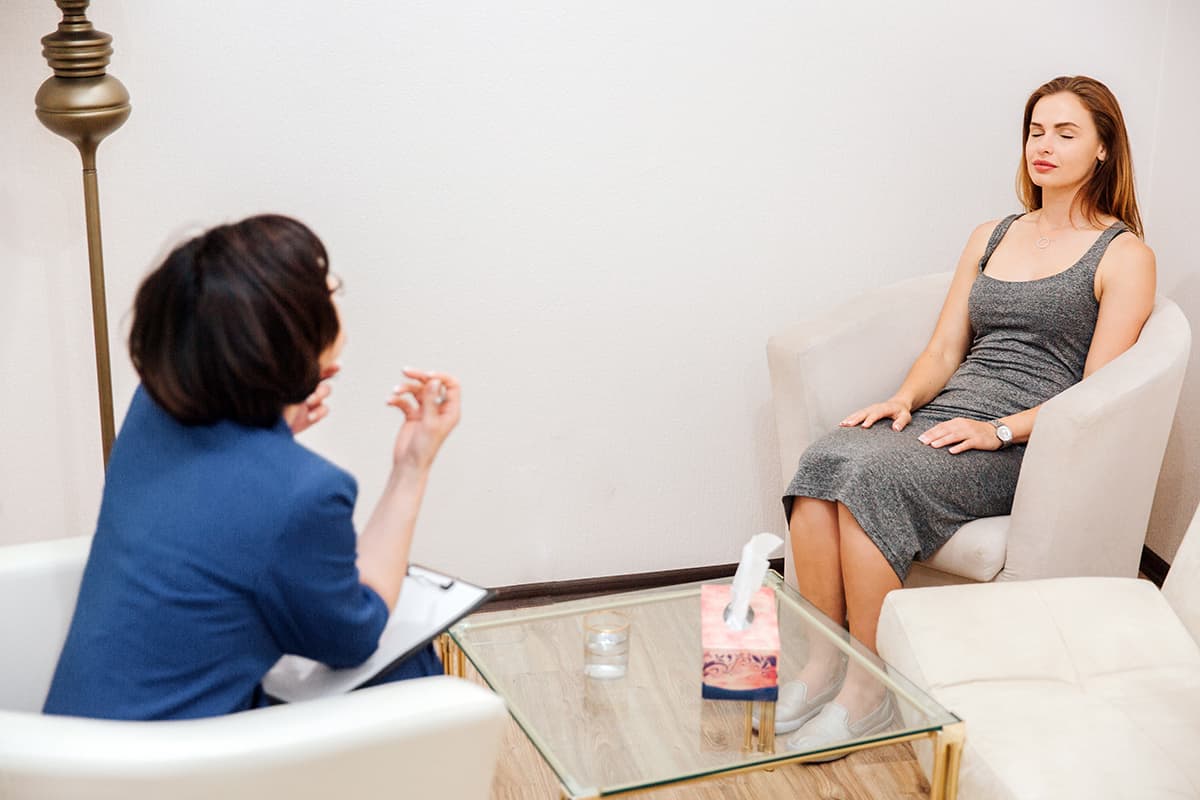After completing treatment for a substance use disorder (SUD), female patients frequently go back to their lives with a hopeful attitude and the expectation that previous relationships can be resumed without too much of a change. However, if problematic intimate relationships, sexuality, and family conflicts are not dealt with effectively or not addressed at all, the relapse risk is high.
The importance of working on these types of relationships — and the importance of doing so specifically from a female perspective — is why at Lakeview Health, we are proud to provide an addiction treatment program that targets women in particular.
Building Healthy Relationships in a Women’s Addiction Treatment Center
At the Rose of Lakeview, the women’s addiction treatment center at Lakeview Health, our team focuses on helping women develop strong relationships in a recovery setting. Learning to build healthy relationships in rehab will help female patients stabilize their recovery after discharge. Frequently, toxic relationships have paved the way for their addiction. This is true for several reasons. For instance:
- Male partners often introduce women to substance abuse. Many women start using drugs or abusing alcohol in order to feel connected with lovers, who are often addicted themselves.
- Whether a male partner has introduced a woman struggling with addiction to alcohol or drugs, male partners often encourage substance use and act as a supplier once she is addicted.
- Women battling addiction issues often have men in their lives who have disappointed them in any number of ways: by being unable to contribute to raising children, by spending time in jail, by physically and emotionally abusing them. This often leads to women self-medicating with alcohol and drugs.
Scenarios like these need to be addressed in treatment. If the reason for the SUD was self-medicating stress caused by relationships, then leaving such relationships unchanged is a recipe for disaster.
Too many women still base their identity on the gender roles they were socialized to play: wife, mother, or daughter. “In treatment, we try to help them figure out who they are as individuals,” says Sarah Franklin, the clinical manager of the women’s facility at Lakeview Health. “If they go back to their relationships, we want them to have their own voice and autonomy because they are going to need that for their recovery.” It is especially problematic if the partner is in active addiction. “Going back to such a situation is extremely risky,” warns Franklin. “It’s a lot easier for a woman to fall back into playing the same role in the relationship if her partner is still in active addiction. If both parties are willing to work on their recoveries in separate programs with different therapists and different sober living facilities, it could work. We’ve seen marriages succeed that way.”
Effective addiction treatment should include rebuilding and setting healthy boundaries—for all parties involved. The family has a central role to play in the treatment of substance use disorders. Parents and life partners should help addicted loved ones by being compassionate supporters. Ideally, they get actively involved in the treatment process. Lakeview Health offers families the opportunity to participate in a three-day family workshop. The workshop consists of group sessions with several families.
The Advantages of a Women’s Addiction Treatment Center
There are several advantages that a gender-specific treatment program has over more traditional mixed-gender programs. Among these are:
- An environment that fosters honesty, openness, and support both among patients and between clinical staff and patients
- The opportunity to build a strong social support network that will provide you with the support and accountability you need even after you have transitioned back into everyday life
- Treatment plans that are customized to suit your gender-specific needs
- A comprehensive aftercare program that will support you as you rebuild your life drug- and alcohol-free
Lakeview Health’s women’s addiction treatment center provides its patients with something that mixed-gender programs cannot: supportive, woman-focused, compassionate care.
Learn More at Lakeview Health Today
If you or someone close to you would benefit from this type of care — and especially if you have tried other kinds of care and have relapsed — consider reaching out to the Rose of Lakeview online today or call us at [Direct].



